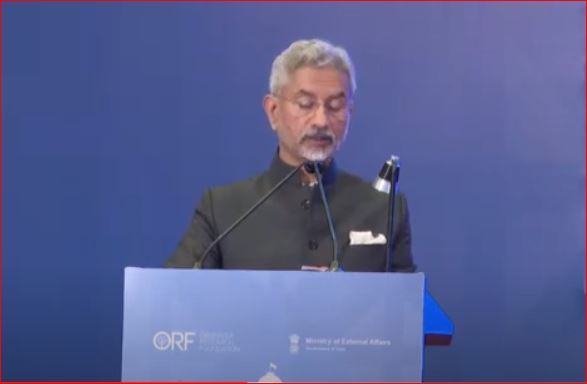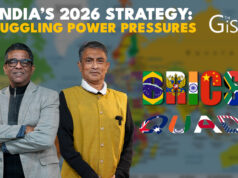“The Quad is here to stay. The Quad is here to grow. The Quad is here to contribute. ” That was how External Affairs Minister Dr S Jaishankar summed up his remarks at the first Raisina Quad Think Tank Forum in New Delhi.
“In the last five years, Quad has become a significant and substantive platform for four large resident Indo-Pacific vibrant democracies, (India, Japan, Australia and the US) that are seeking to uphold an open, and inclusive Indo-Pacific,” he told the large audience comprising diplomats, delegates, students and journalists at the Sushma Swaraj Bhawan auditorium on Saturday, a day after the 9th Raisina Dialogue concluded at the Taj Palace Hotel, about 1.5 km away. The annual flagship dialogue is organised by the Observer Research Foundation and the Ministry of External Affairs.
India will host the next Quad Leaders’ Summit later this year.
“As someone who has been long associated with this enterprise, allow me to share a few thoughts about its history because there are important lessons to be drawn from it,” said Dr Jaishankar. “The origins of the Quad go back to the Tsunami response; this was an event which happened in late December 2004. I happened to be the coordinator for that response on the Indian side. In 2006, the actual idea of an Quad was put forward by the then Japanese Prime Minister Shinzo Abe.
“But … it unraveled within a year and in fact, Abe himself had left office at that time. In 2017, after a full decade, Quad was resumed, first, at the Foreign Secretaries level and then was upgraded in 2019 to the Ministerial one. Coincidentally, I happened to be occupying both positions at that particular juncture. In 2021, we, all four of us, upgraded it to the Summit level and it has flourished since.”
So what does Quad stands for? “I believe, it has five messages. One, it reflects the growth of a multi-polar order. Two, it is a post-alliance and post-cold war thinking. Three, it is against spheres of influence. Four, it expresses the democratizing of the global space and a collaborative, not unilateral, approach. And five, it is a statement that in this day and age, others cannot have a veto on our choices,” he said.
The reason why the Quad has grown so rapidly, he said, was “that all four governments have behaved differently from how they normally do. Quad is an overhead light, creative, flexible, nimble, responsive and open-minded enterprise. These are not adjectives we normally associate with the bureaucracy.”
He then went on to list the achievements and activities of the Quad, which included “maritime security, infrastructure & connectivity, HADR, critical technologies, communications, space cooperation, cyber security, counter-terrorism, fellowships, climate action” to begin with. “In critical technologies, Quad seeks to build resilient supply chains in telecom, cyber security, semiconductors and AI,” and “promoting cyber awareness and capacity building in the Indo-Pacific.”
Quad countries together have announced more than 1800 ‘Infrastructure Fellowships’ for policy makers and technical experts, commenced discussions about deploying digital public infrastructure to deliver public goods in the Indo-Pacific, he said, adding: “One very unique Quad initiative has been the STEM Fellowship program – under which about a 100 scholars from the four countries have enrolled in courses in US universities. I am very happy to share with you all that the second cycle of Quad STEM Fellowships has been extended ASEAN member countries as well.”
Dr Jaishankar’s address was preceded by welcome addresses by Additional Secretary, Ministry of External Affairs Vani Rao, Australian High Commissioner Philip Green and Japanese Ambassador Hiroshi Suzuki, followed by ministerial addresses on video by Japan’s Foreign Minister Yoko Kamikawa, Australian Foreign Minister Penny Wong and US Deputy Secretary of State Kurt Campbell.
Also See:
In a career spanning three decades and counting, Ramananda (Ram to his friends) has been the foreign editor of The Telegraph, Outlook Magazine and the New Indian Express. He helped set up rediff.com’s editorial operations in San Jose and New York, helmed sify.com, and was the founder editor of India.com.
His work has featured in national and international publications like the Al Jazeera Centre for Studies, Global Times and Ashahi Shimbun. But his one constant over all these years, he says, has been the attempt to understand rising India’s place in the world.
He can rustle up a mean salad, his oil-less pepper chicken is to die for, and all it takes is some beer and rhythm and blues to rock his soul.
Talk to him about foreign and strategic affairs, media, South Asia, China, and of course India.





